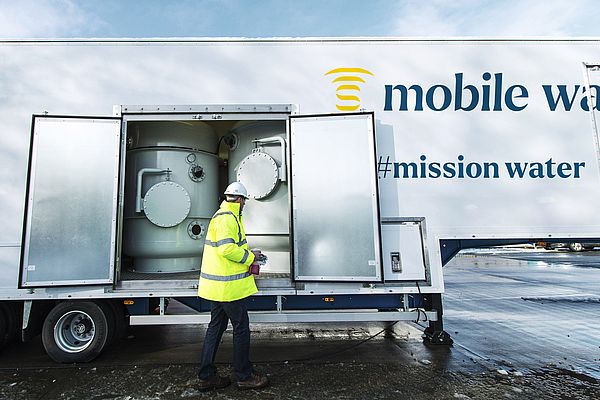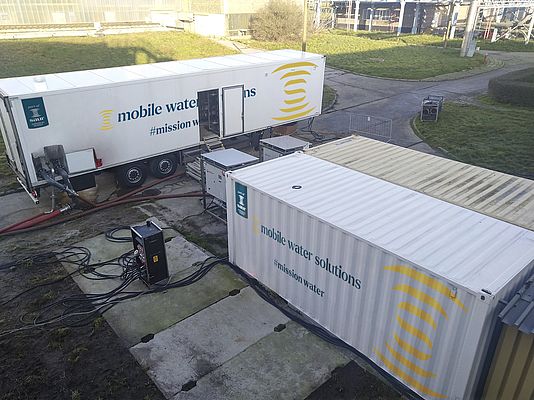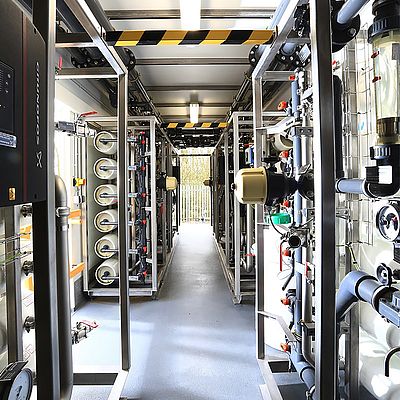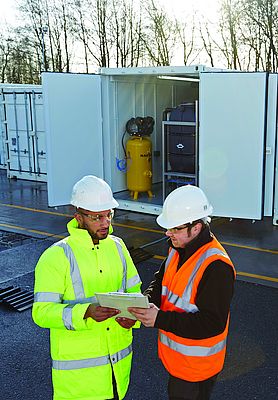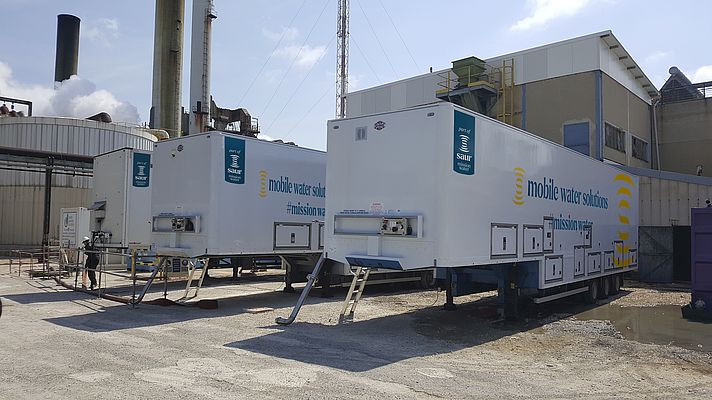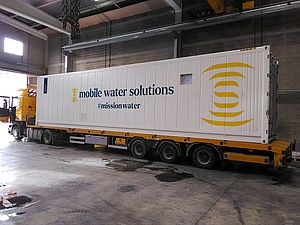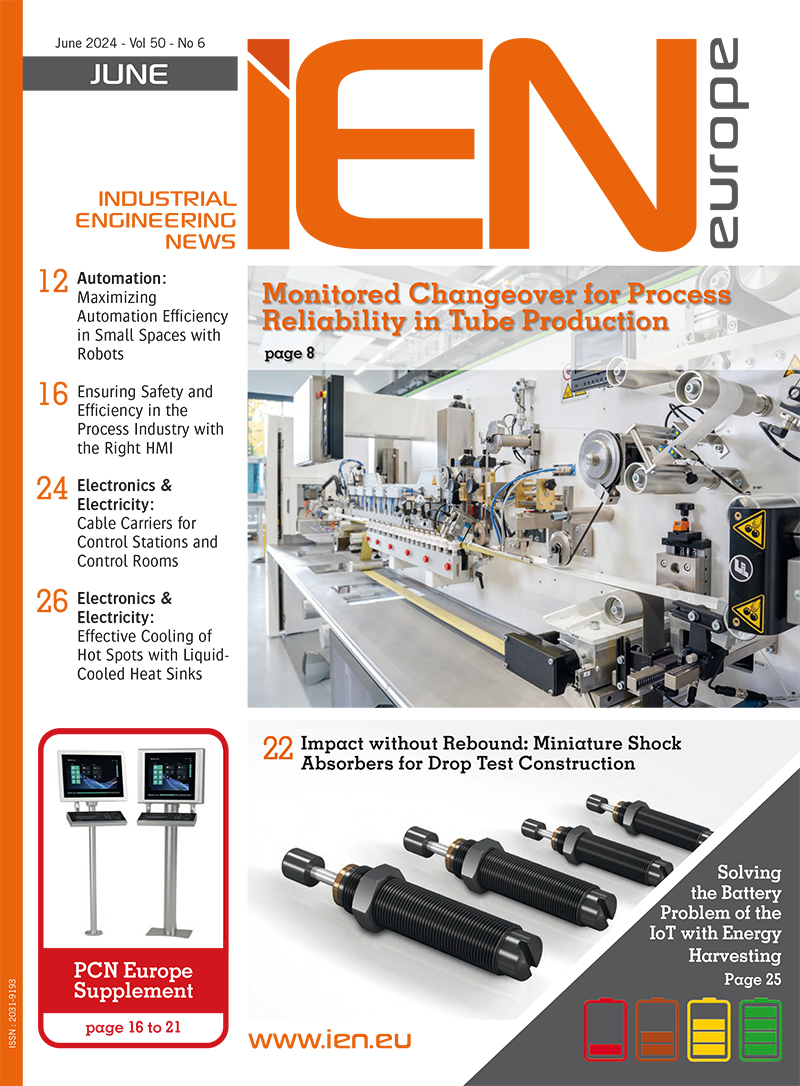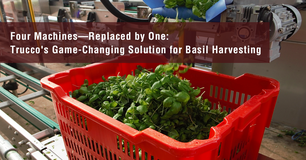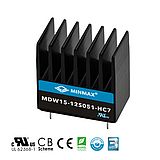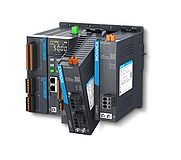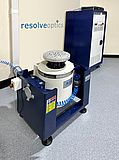NSI MOBILE WATER SOLUTIONS. Across Europe in heavy industries like Power, Chemical, Petrochemical and Refining, operators are facing an increasing challenge from their ageing assets including water treatment plants. The HSE cites the potential degradation of plant and equipment due to age-related mechanisms such as corrosion, erosion and fatigue as a key issue for the industry. In addition to safety concerns, ageing plants may also impact continuity of production. This can be seen in permanent onsite water treatment facilities. Water is a vital utility in many heavy industry processes and the demand for it is increasing with population and industry growth. Ageing plants are not always reliable or efficient and often emergency maintenance is required to avoid disruption to production which could result in costly downtime for operating sites.
Emergency provision of temporary water treatment is well established and NSI Mobile Water Solutions are well placed to meet these urgent requirements. However, more and more operators are recognizing and seeking the need for a more “permanent temporary” solution. Mobile water solutions providers can also bridge a gap for operators with a problematic plant until it can be replaced or repaired or even to bridge a time period if there are variations in feed water supply or quality.
Operators across several industries in Europe have worked with temporary water treatment service providers to provide a flexible longer-term solution to tackle the reliability issue around the permanent ageing plant and even extend its potential life cycle. Preventative maintenance and refurbishment of a permanent water treatment plant needs to be carried out more frequently without interrupting the production schedule and not during a planned shutdown. A temporary water treatment system may be deployed to either provide the full replacement or partial part of the various processes during this interim need. Typical applications include resin replacement, pressure vessel maintenance, controls upgrades, reverse osmosis membrane cleaning or replacement, maintenance on chemical dosing equipment and work on waste treatment plants.
Longer term asset rental is now an attractive alternative to high upfront investment in permanent water treatment technology across many sectors. Tightening CAPEX budgets, an emphasis on business continuity and a desire for flexible, affordable water management, have all generated a demand for mobile water solutions, which offer a cost-effective, alternative solution to procuring new installations for upgrading existing infrastructure, as well as providing emergency relief and fulfilling temporary water requirements.
An evolving solution
A typical mobile plant may consist of two or three assets or skid-mounted systems, which can be assembled in a plug-and-play fashion. A typical set-up involves initial pretreatment by multi-media filtration or granular activated carbon adsorption, followed by reverse osmosis in a second trailer, and subsequent mixed bed ion exchange polishing in a third.
The modular design of many of today’s mobile water solutions allows a variety of process configurations to be combined, making it possible to treat towns’ mains, borehole, river and reservoir water, and even wastewater resources. The containers’ portability enables them to be positioned to make the best use of the available space, eliminating or reducing the need for building infrastructure to house the equipment. Any number of assets can be operated in parallel or in series to provide the required flow rate, and their modularity allows additional components or treatment steps to be added for extra functionality or increased throughput, even if it is only needed for a short period of time. Storage tanks and pumps can also be provided – together with interconnecting fixed pipework or flexible hoses, water meters and fittings – and mobile generators support a completely standalone set-up. A final, and perhaps the most important, consideration is that these modular units can be easily exchanged over time for the latest, updated technology, ensuring that a company’s water treatment systems remain at the cutting edge and benefit from the most cost-effective, available solution from its mobile water services supplier.
CAPEX considerations
Plant operators face a number of current challenges. Environmental targets, changes in production demand and tightening budgets have all made it more difficult to make a strong case for capital investment. The fallout of this has been a reluctance to invest in projects where the lifetime and return on investment are uncertain. In light of this, one of the attractions of mobile water solutions is their flexibility, as the rental payments can be covered by the operational budget, removing the need to raise capital. Mobile water services suppliers – such as NSI Mobile Water Solutions – are often willing to enter into pay-as-you-go, multiyear contracts, which help to improve financial planning thanks to predictable, regular payments.
Planned maintenance and turnarounds
A temporary water treatment system is a perfect solution in an emergency and can sustain a continuous supply of treated water for all unanticipated scenarios, such as coping with short-term demands. However, many facilities will also need to plan for maintenance of existing water systems, and mobile water solutions can be brought in to cover equipment servicing, ensuring that production or business processes can continue and avoiding costly downtime. In some instances, a facility may need to cope with seasonal or unexpected changes to its raw water supply.
Scheduled turnarounds may involve a total suspension of operational activities. A turnaround that exceeds its timeline or budget can have serious financial consequences, so it is essential that an efficient, reliable water supply is available as needed. In these instances, mobile water solutions can be brought in to support all maintenance and cleaning activities, as demonstrated by the experience of another multinational oil and gas company. A turnaround had been scheduled and, during the subsequent start-up phase, the refinery needed an extra back-up supply of demineralized water – 100 m3/h in operation and 100 m3/h in standby – running in parallel to its own demineralised water plant. NSI Mobile Water Solutions provided a four-trailer configuration to guarantee the water supply and meet the water specifications, including a conductivity of <0.1 µS/cm and <10 ppm of SiO2. This short-term intervention offered a reliable and secure back-up and, as a plan and agreement was already in place, NSI Mobile Water Solutions was able to offer fast deployment and commissioning.
Awareness is key
There are numerous benefits that mobile water services can bring to industrial manufacturers facing the challenge of ageing plants. Raising knowledge and awareness is key for mobile water solutions suppliers over the next couple of years. A distinct shift in outlook is necessary to help companies to transition from seeing temporary water services as only an emergency service provider, to understanding the value in a longer-term solution to an ongoing issue. Mobile water services represent a sensible alternative to capital investment. As awareness grows, we can expect to see more mobile water solutions being implemented, supporting financial planning, ensuring business continuity and helping to maintain resilient and effective water treatment plants.
Robert Stancombe, Mobile Water Solutions, part of Nijhuis Saur Industries


